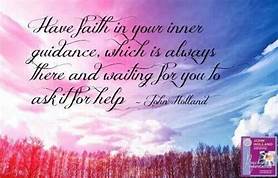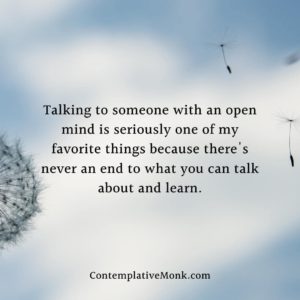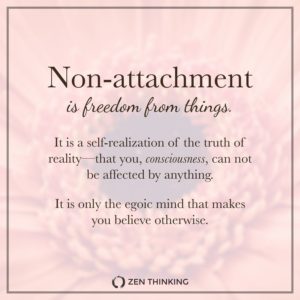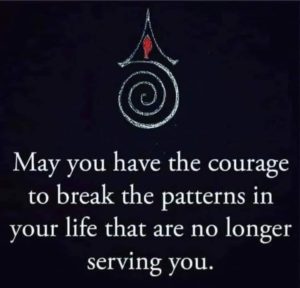Category: Spiritual Writings
Your Intuition
 “Intuition is access to compassion and wisdom that is beyond what we are able to give one another. It is communication with nonphysical guides and Teachers, whose only interest is your spiritual growth. The first part of accessing intuition is to ask a question. The second part is to listen for the answer. The answer will always come, although perhaps not in the way or at the time that you expect.
“Intuition is access to compassion and wisdom that is beyond what we are able to give one another. It is communication with nonphysical guides and Teachers, whose only interest is your spiritual growth. The first part of accessing intuition is to ask a question. The second part is to listen for the answer. The answer will always come, although perhaps not in the way or at the time that you expect.

Your answer might come while you are in the shower, out of a walk, or driving to work. It may not be what you want to hear. Answers that come from your intuition will often surprise you. Your intellect will always rationalize what you want to do.
Intuitive insights are not directives, instructions, or commandments. Your nonphysical Teachers will not tell you what to do. They will lead you to the full scope and depth of your creative capacity, help you see options that you have not thought about, and consider the consequences that each will create.
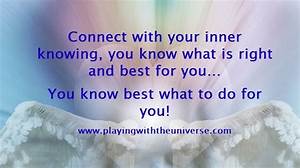
Only you can decide how you will use your will to shape energy into matter, and what karma you will create. Responsibility for your choices is always yours alone, no matter whom you consult in the process of making them, including nonphysical Teachers.”
Spiritual Partnership – A Journey To Authentic Power, Gary Zukav, p. 191.
Talking To Someone
Love Yourself Enough
You Can Not Be Affected
Meeting Your Thoughts with Understanding
 “A thought is harmless unless we believe it. It is not our thoughts, but the attachment to our thoughts, that causes suffering. Attaching to a thought means believing that it’s true, without inquiring.
“A thought is harmless unless we believe it. It is not our thoughts, but the attachment to our thoughts, that causes suffering. Attaching to a thought means believing that it’s true, without inquiring.
 A belief is a thought that we’ve been attaching to, often for years. Most people think that they are what their thoughts tell them they are.
A belief is a thought that we’ve been attaching to, often for years. Most people think that they are what their thoughts tell them they are.
One day I noticed that I wasn’t breathing—I was being breathed. Then I also noticed, to my amazement, that I wasn’t thinking—that I was actually being thought and that thinking isn’t personal. Do you wake up in the morning and say to yourself, ‘I think I won’t think today?’ It’s too late: You’re already thinking!
 Thoughts just appear. They come out of nothing and go back to nothing, like clouds moving across the empty sky. They come to pass, not to stay. There is no harm in them until we attach to them as if they were true.
Thoughts just appear. They come out of nothing and go back to nothing, like clouds moving across the empty sky. They come to pass, not to stay. There is no harm in them until we attach to them as if they were true.
 No one has ever been able to control his thinking, although people may tell the story of how they have. I don’t let go of my thoughts—I meet them with understanding. Then they let go of me.
No one has ever been able to control his thinking, although people may tell the story of how they have. I don’t let go of my thoughts—I meet them with understanding. Then they let go of me.
Thoughts are like the breeze or the leaves on the trees or the raindrops falling. They appear like that, and through inquiry, we can make friends with them. Would you argue with a r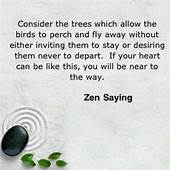 aindrop? Raindrops aren’t personal, and neither are thoughts.
aindrop? Raindrops aren’t personal, and neither are thoughts.
Once a painful concept is met with understanding, the next time it appears you may find it interesting. What used to be the nightmare is now just interesting. The next time it appears, you may find it funny. The next time, you may not even notice it. This is the power of loving what is.”
The Work Of Byron Katie, Byron Katie, p.9-10.
The Higher Power
Free Yourself
 “To free ourselves from our neurotic ego is ultimately to accept the conditions of existence and to see ourselves not as victims or opponents of the givens of reality, but as adults who face up to them honestly. These givens include the following: things change and end; life is not always fair; we pay for growth with suffering; things do not always go according to plan; people are not always loyal or loving. Accepting the conditions of existence means first of all admitting our vulnerability to them. To let go of the entitlement to an exemption is thus to be ready for love.
“To free ourselves from our neurotic ego is ultimately to accept the conditions of existence and to see ourselves not as victims or opponents of the givens of reality, but as adults who face up to them honestly. These givens include the following: things change and end; life is not always fair; we pay for growth with suffering; things do not always go according to plan; people are not always loyal or loving. Accepting the conditions of existence means first of all admitting our vulnerability to them. To let go of the entitlement to an exemption is thus to be ready for love.
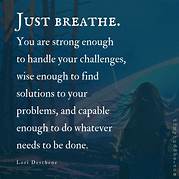 When we realize that the givens of life no matter how ferocious are not penalties but ingredients of depth, lovability, and character, we can let go of the belief that we are immune (or need to be). ‘That can’t happen to me’ or ‘How dare they do that to me’ change to ‘Anything human can happen to me, and I will do my best to handle it.’ The strength to handle challenges, in fact, is directly proportional to how much we let go of entitlement.
When we realize that the givens of life no matter how ferocious are not penalties but ingredients of depth, lovability, and character, we can let go of the belief that we are immune (or need to be). ‘That can’t happen to me’ or ‘How dare they do that to me’ change to ‘Anything human can happen to me, and I will do my best to handle it.’ The strength to handle challenges, in fact, is directly proportional to how much we let go of entitlement.
 Once we cease our dispute with circumstances and simply face them and deal with them, we feel serenity, changing what can be changed and accepting what cannot be changed. By doing so, we build a strong foundation for self-respect, a healthy alternative to universal entitlement. This means, among other things, establishing and maintaining personal boundaries so that others do not take advantage of us. Thus, self-respect is strength and not weakness, but it gives us power for something, not over anything. It overcomes our fear of scarcity and deprivation. We feel love and freedom springing up abundantly within.”
Once we cease our dispute with circumstances and simply face them and deal with them, we feel serenity, changing what can be changed and accepting what cannot be changed. By doing so, we build a strong foundation for self-respect, a healthy alternative to universal entitlement. This means, among other things, establishing and maintaining personal boundaries so that others do not take advantage of us. Thus, self-respect is strength and not weakness, but it gives us power for something, not over anything. It overcomes our fear of scarcity and deprivation. We feel love and freedom springing up abundantly within.”
How To Be An Adult In Relationships, David Richo, p. 184.
